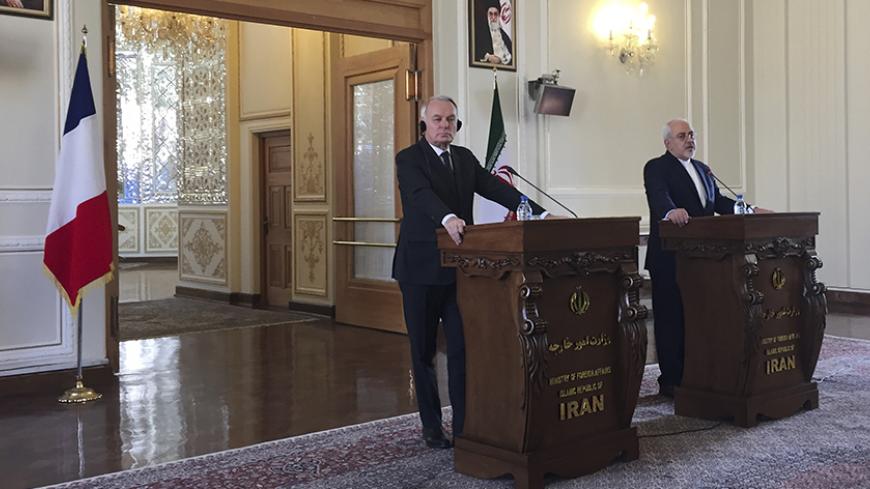Accompanied by a 60-member political and business delegation, French Foreign Minister Jean-Marc Ayrault arrived in Tehran on Jan. 30. He met with President Hassan Rouhani, parliament Speaker Ali Larijani, Supreme National Security Council Secretary Ali Shamkhani and Foreign Minister Mohammad Javad Zarif during his two-day visit.
In a joint press conference in Tehran on Jan. 31, the Iranian and French foreign ministers emphasized the importance of the continuing implementation of the Joint Comprehensive Plan of Action (JCPOA). Ayrault said, “We are against any initiative that is contrary to the spirit of the JCPOA, and especially if it leads to new negotiations.”



